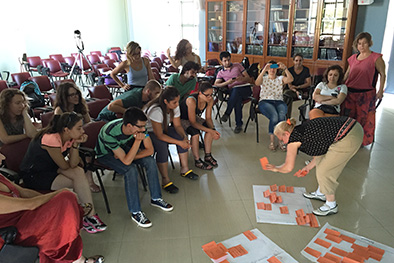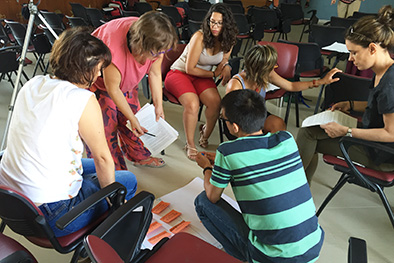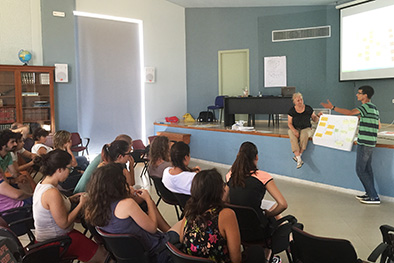A number of international and local organizations, research institutes, universities and NGOs came together to provide a diverse curriculum. Lead by MIO-ECSDE, the initiative was supported by the Global Water Partnership (GWP), UNESCO Regional Bureau for Science and Culture in Europe Venice (Italy), the Municipality of Samothraki, the Region of Eastern Macedonia – Thrace and ScientAct SA. More than 70 participants from Austria, Bosnia & Herzegovina, Belgium, Bulgaria, Cyprus, Ecuador, Germany, Greece, Italy, Macedonia FYR, the Netherlands, Poland, Serbia, Slovakia, Slovenia, Spain, Sweden, and Turkey took part in the summer university.
The main aim of the Summer University was to provide a high quality education to postgraduate students and young scientists from European countries with a special focus on Integrated Management practices of Biosphere Reserves and various other categories of protected areas (National Parks, Areas Natura 2000, etc.).
Course B combined plenary and group work, covering the topics like Integrative Water Resources Management Approaches (IWRM); GWP Toolbox, Biosphere Reserves, Public & Stakeholder Participation, Modeling and Simulation of dynamic systems (their use in sustainable development and management), Marine litter and many more. Following the plenary in the morning, the trainees were later engaged in interactive discussions and/or undertaking intensive guided group work under the guidance of the trainers.

The IWRM GWP ToolBox training was an integral part of the two-week training. A cooperation of GWP MED and GWP CEE resulted in a joint recruitment of participants from both regions who were navigated to the main features of the IWRM ToolBox, which as a knowledge resource can be a complementary study material in their study courses. The case studies were chosen to reflect issues in both regions, to show the complexity of IWRM approach and to illustrate the practical application of sustainable development in small abandoned area with low investment and political power of local community.
Throughout the whole training, the participants were working on a group assignment to develop recommendations for the sustainable management and development of the island, having as a reference point (i) the Samothrace Submission folder to the UNESCO MAB BR Programme (ii) the IMF methodology and, combining all their findings throughout the summer university; all the group’s work were presented during the last day.

The Summer University specifically aimed to highlight the rich natural and cultural diversity and heritage of the island of Samothraki and support the proposal for its inclusion in the World Network of Biosphere Reserves (UNESCO Man and the Biosphere Programme, MAB/UNESCO).
